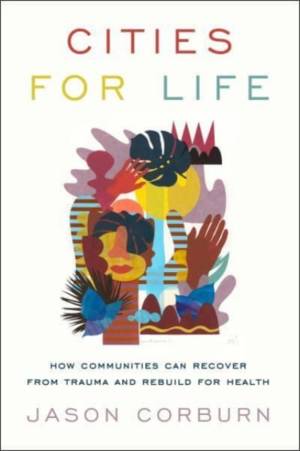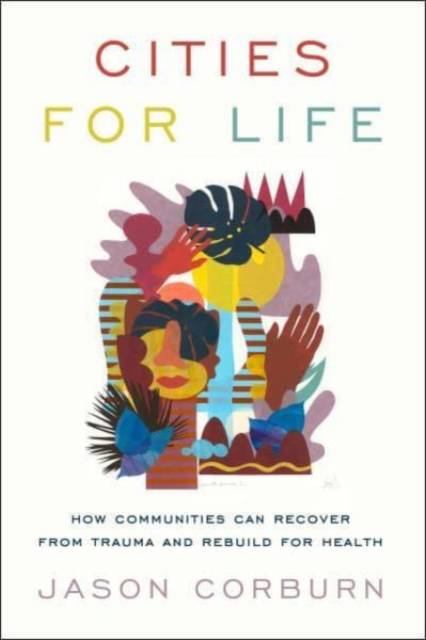
Door een staking bij bpost kan je online bestelling op dit moment iets langer onderweg zijn dan voorzien. Dringend iets nodig? Onze winkels ontvangen jou met open armen!
- Afhalen na 1 uur in een winkel met voorraad
- Gratis thuislevering in België vanaf € 30
- Ruim aanbod met 7 miljoen producten
Door een staking bij bpost kan je online bestelling op dit moment iets langer onderweg zijn dan voorzien. Dringend iets nodig? Onze winkels ontvangen jou met open armen!
- Afhalen na 1 uur in een winkel met voorraad
- Gratis thuislevering in België vanaf € 30
- Ruim aanbod met 7 miljoen producten
Zoeken
Cities for Life
How Communities Can Recover from Trauma and Rebuild for Health
Jason Corburn
Paperback | Engels
€ 43,45
+ 86 punten
Omschrijving
Environmental Design Research Association (EDRA) Place Book Award Winner (2022) What if cities around the world actively worked to promote the health and healing of all of their residents? Cities contribute to the traumas that cause unhealthy stress, with segregated neighborhoods, insecure housing, few playgrounds, environmental pollution, and unsafe streets, particularly for the poor and residents who are Black, Indigenous, and People of Color. Some cities around the world are already helping their communities heal by investing more in peacemaking and parks than in policing; focusing on community decision-making instead of data surveillance; changing regulations to permit more libraries than liquor stores; and building more affordable housing than highways. These cities are declaring racism a public health and climate change crisis, and taking the lead in generating equitable outcomes. In Cities for Life, public health expert Jason Corburn shares lessons from three of these cities: Richmond, California; Medellín, Colombia; and Nairobi, Kenya. Corburn draws from his work with citizens, activists, and decision-makers in these cities over a ten-year period, as individuals and communities worked to heal from trauma--from gun violence, housing and food insecurity, and poverty. Corburn shows how any community can rebuild their social institutions, practices, and policies to be more focused on healing and health. This means not only centering those most traumatized in decision-making, Corburn explains, but confronting historically discriminatory, exclusionary, and racist urban institutions, and promoting healing-focused practices, place-making, and public policies. Cities for Life is essential reading for urban planning, design, healthcare, and public health professionals as they work to reverse entrenched institutional practices through new policies, rules, norms, and laws that address their damage and promote health and healing.
Specificaties
Betrokkenen
- Auteur(s):
- Uitgeverij:
Inhoud
- Aantal bladzijden:
- 288
- Taal:
- Engels
Eigenschappen
- Productcode (EAN):
- 9781642831726
- Verschijningsdatum:
- 16/11/2021
- Uitvoering:
- Paperback
- Formaat:
- Trade paperback (VS)
- Afmetingen:
- 150 mm x 226 mm
- Gewicht:
- 385 g

Alleen bij Standaard Boekhandel
+ 86 punten op je klantenkaart van Standaard Boekhandel
Beoordelingen
We publiceren alleen reviews die voldoen aan de voorwaarden voor reviews. Bekijk onze voorwaarden voor reviews.











